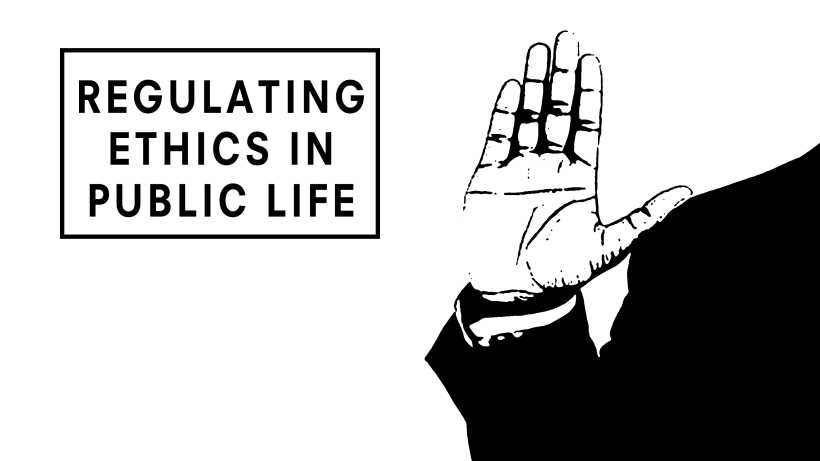
Source: Image by G_marius
An increasing number of governments are regulating Public Service conduct. Join the discussion on the main drivers and problems of ethics regulation
Public service code of conduct: Do ethics laws make government ethical?
Concerns about ethics in politics are growing. Constructing and maintaining an improved regulatory system of "government ethics" has become an increasingly salient goal among practitioners and academics. A regulatory system for government ethics can benefit from analysis applied to other regulatory regimes. In the past, elaborate and often inconsistent systems of government ethics have generated confusion and unintended consequences, and have not succeeded in advancing the critical goals for such a system.
One of the early studies of the US system of government ethics Scandal Proof: Do Ethics Laws Make Government Ethical? (Brookings Institution Press, 2002) by G. Calvin Mackenzie and Michael Hafken. According to this study evidence shows that, in the US, the benefits of federal ethics policy did not outweigh its costs. The US government initiative to develop ethics policies have meant a great economic and manpower investment, and had has created burdens on individuals and constraints on the quality of public management. Unfortunately little net gain in ethics has been proven and public trust in government and politics has continued to decline. Thus, maybe there are better ways to ensure the integrity of the public service.
However, many argue that creating a regulatory system to define and limit ethical behavior in the public service could be improved and expanded to other countries in order to enhance public confidence and guide government decision-making that will justify the costs of the regulatory regime. Integrity, transparency, and accountability are some of the goals that regulators are looking to achieve with a public service code of conduct.
Challenges and problems when regulating standards in public life?
A series of key challenges emerge when regulating ethics and setting a public service code of conduct:
- The tension between the language of ethics regulation, which often draws on concepts associated with normative standards of ‘ethics’ and morality, and the architecture of ethics regulation.
- The challenges of designing a regulatory structure that balances the requirements of effective ethics enforcement with the need for political accountability.
- The extent to which ethics regulation is the by-product of a "scandal-and-reform" political dynamic and the effect that such dynamic could have on the coherence and efficiency of ethics regulatory regimes.
- The "political" need to regulate ethics through bright-line rules and the impact that potential "creative compliance" could have on public confidence.
Moreover there are some negative unintended consequences of greater ethics regulation, including:
- Potential loss of trust in government and politics, as greater regulation may lead to more ethics violations, which in turn can create further public concern about public servants;
- Making more difficult for governments to recruite top-tier talent for critical agencies
- Deterrence for those interested in pursuing a political career;
- The proliferation of "weaponized ethics" on the basis of a technical ethics violation.
Drivers for greater regulation on government ethics
To better understand the drivers of the growing trend of government ethics regulation, you can watch this discussion between LSE Professor Martin Lodge and Charles Border (Partner, Allen & Overy, Washington D.C, and Visiting Fellow at CARR):
Assuring the public that ethical standards are respected by civil servants and politicians in decision-making and implementation of policies seems to resonate with our understanding of democracy. Although in principle this is a beneficial project to society the challenges and problems that regulators would encounter make it an interesting topic of debate. Do you think that overall regulating the public service code of conduct is positive to our societies?
Other questions you may want to consider: What are the key problems in creating and administering a system for regulating standards in public life? Has increased regulation of standards for public life negatively affected governmental/legislative performance? Can there ever be a ‘deregulation’ in the regulation of standards in public life? What are the biggest challenges that ethics regulators face?
If you change your mind, you can change your vote simply by clicking on another option.
Voting results
Public service code of conduct: Do ethics laws make government ethical?
New to netivist?
Join with confidence, netivist is completely advertisement free. You will not receive any promotional materials from third parties.
Join the debate
In order to join the debate you must be logged in.
Already have an account on netivist? Just login. New to netivist? Create your account for free.











